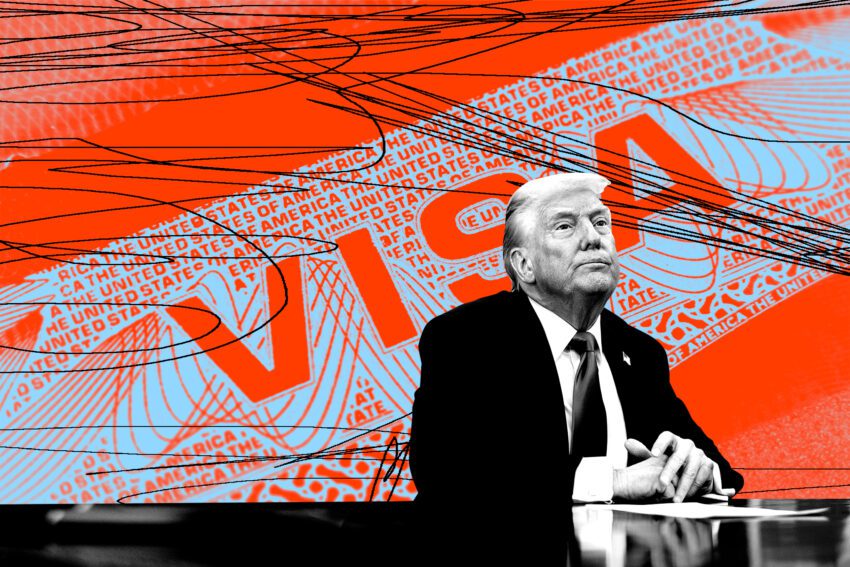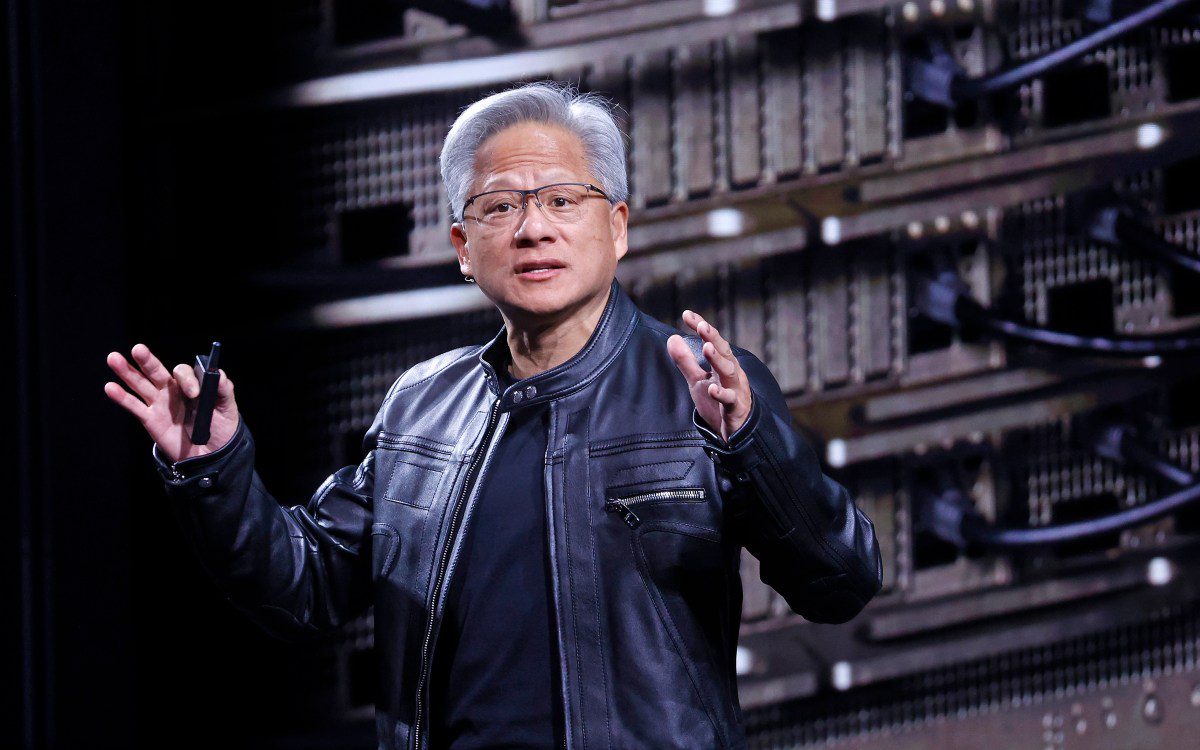
trump s new h-1b policy caused short-term Donald Trump’s administration has initiated significant changes to the H-1B visa program, creating immediate uncertainty for businesses and foreign workers alike while raising concerns about the long-term implications for the U.S. economy.
trump s new h-1b policy caused short-term
Background on the H-1B Visa Program
The H-1B visa program was established in 1990 to allow U.S. companies to employ foreign workers in specialty occupations that require theoretical or technical expertise. This visa is particularly popular in fields such as technology, engineering, and healthcare. Each year, the U.S. government issues a limited number of H-1B visas, with the annual cap set at 65,000, plus an additional 20,000 for individuals with advanced degrees from U.S. institutions.
Over the years, the program has been a vital source of talent for American companies, especially in the tech sector, where there is often a shortage of qualified domestic candidates. However, the program has also faced criticism, with opponents arguing that it displaces American workers and drives down wages. This criticism has gained traction among various political factions, particularly during Trump’s presidency.
Trump’s Shift in Immigration Policy
During his 2016 presidential campaign, Trump positioned himself as a candidate focused on curbing illegal immigration while maintaining a somewhat favorable stance toward legal immigration. He frequently emphasized the need for a merit-based immigration system that would prioritize skilled workers. However, as his administration progressed, the rhetoric shifted, and the focus on legal immigration began to wane.
Trump’s administration, influenced by key figures such as Stephen Miller, has increasingly targeted the H-1B visa program. This shift has been characterized by a series of policy changes aimed at tightening eligibility requirements and increasing scrutiny of applications. The administration’s actions have created a climate of uncertainty for both employers and prospective visa holders.
Immediate Impact on Businesses
The changes to the H-1B visa program have led to immediate panic among businesses that rely on foreign talent. Many companies, particularly in the technology sector, have expressed concerns about their ability to attract and retain skilled workers. The uncertainty surrounding the visa process has made it difficult for companies to plan for the future, leading to potential disruptions in operations and project timelines.
Some businesses have reported difficulties in securing H-1B visas for new hires, with increased scrutiny leading to a higher rate of denials. This has forced companies to reconsider their hiring strategies and, in some cases, to look for talent abroad in countries with more favorable immigration policies. The fear of losing out on top talent has prompted some companies to advocate for a more stable and predictable immigration system.
Reactions from the Business Community
The business community’s reaction to these changes has been mixed. While some industry leaders have voiced support for stricter immigration controls, many others have expressed alarm over the potential long-term consequences for the U.S. economy. The tech industry, in particular, has been vocal about the need for a robust H-1B program to ensure that American companies can compete globally.
Organizations such as the Information Technology Industry Council (ITI) and the American Immigration Council have criticized the administration’s approach, arguing that it undermines the U.S.’s position as a leader in innovation. They contend that limiting access to skilled foreign workers could hinder economic growth and technological advancement.
Long-Term Implications for the U.S. Economy
The long-term implications of Trump’s H-1B policy changes could be profound. By restricting access to skilled foreign workers, the U.S. risks falling behind other countries in the global competition for talent. Nations such as Canada and Australia have been actively courting skilled immigrants, offering more favorable immigration policies that could attract talent away from the U.S.
Moreover, the reduction in the number of skilled workers entering the U.S. could lead to a skills gap in critical industries. As the demand for technology and engineering professionals continues to grow, the inability to fill these roles could stifle innovation and economic growth. This situation could create a paradox where American companies struggle to find qualified candidates while simultaneously having to navigate a complex and uncertain immigration landscape.
Impact on International Students
Another significant aspect of the H-1B visa changes is their impact on international students. Many foreign students pursue degrees in the U.S. with the hope of securing employment through the H-1B program after graduation. However, the tightening of visa regulations has created a sense of insecurity among these students, leading some to reconsider their plans to study in the U.S.
The potential loss of international students could have a cascading effect on U.S. universities and colleges, which rely on tuition from foreign students to support their programs. Additionally, the U.S. economy benefits from the contributions of international students, who often engage in research and innovation during their studies.
Political Reactions and Future Prospects
The political landscape surrounding immigration remains contentious, with Trump’s policies drawing both support and opposition. Proponents of stricter immigration controls argue that these measures are necessary to protect American jobs and ensure national security. Conversely, opponents contend that the changes are detrimental to the U.S. economy and undermine the country’s reputation as a welcoming destination for talent.
As the 2020 election approaches, immigration policy is likely to remain a key issue. Candidates from both parties will need to address the concerns of various stakeholders, including businesses, workers, and international students. The outcome of the election could significantly influence the future of the H-1B visa program and broader immigration policies.
Calls for Reform
In light of the challenges posed by the current H-1B visa policies, there have been calls for comprehensive immigration reform. Advocates argue that a more streamlined and predictable immigration system is essential for maintaining the U.S.’s competitive edge in the global economy. This could involve revising the H-1B program to better align with the needs of American businesses while ensuring that it remains accessible to skilled workers.
Some proposals include increasing the annual cap on H-1B visas, simplifying the application process, and providing pathways to permanent residency for foreign workers who contribute to the U.S. economy. These reforms could help alleviate some of the uncertainty currently facing businesses and foreign workers.
Conclusion
The changes to the H-1B visa program under the Trump administration have created immediate panic among businesses and raised concerns about the long-term implications for the U.S. economy. As companies grapple with the uncertainty surrounding visa applications, the potential loss of skilled foreign workers could hinder innovation and growth. The political landscape remains contentious, and the future of the H-1B program will likely be a focal point in upcoming elections. Comprehensive immigration reform may be necessary to address the challenges posed by current policies and ensure that the U.S. remains a competitive destination for talent.
Source: Original report
Was this helpful?
Last Modified: September 26, 2025 at 10:41 pm
3 views















